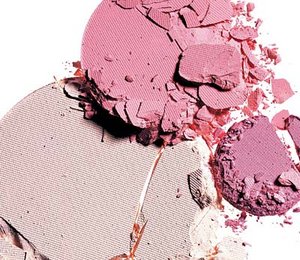Recently, several organic-certifying options have become available in the United States. Ecocert is a France-based organic-certification group that has been certifying products in Europe for some time. Ecocert's standards allow nonorganic and petroleum-derived ingredients in products they certify as organic. They have also been known to certify products that don't meet their standards. Ecocert's standards are weak and actually allow products to be misrepresented as organic when they contain nonorganic, synthetic and petroleum-derived ingredients. The Ecocert standards do not meet the National Organic Program standards.
Leading companies in the cosmetic and personal care industry developed the Organic and Sustainable Industry Standards (OASIS). As the demand for natural and organic products is increasing, the mainstream industry, which produces synthetic, nonorganic, petroleum-based products, is vying for its piece of the organic pie. The OASIS standards allow organic certification for products that contain nonorganic ingredients "grown with synthetic fertilizers, herbicides and pesticides, and preserved with synthetic petrochemical preservatives."OASIS standards are not true organic standards.
 Certech is a new, Canada-based certifying body that promises high standards strictly conforming "to the principles, guidelines and regulations already in existence internationally," including the National Organic Program. As of this writing, Creech has only certified one product line: Canadian Eugenic D'Avicenna Natural and Organic personal care products. This will be the organic cosmetic and personal care product certifying body to watch. Products certified by Certech will probably be closest to meeting the standards of the National Organic Program of all the certification programs. Time will tell, as Certech certifies more and more products, if it really is setting the high standard of organic certification for cosmetics and personal care products that the "true" organic industry demands.
Certech is a new, Canada-based certifying body that promises high standards strictly conforming "to the principles, guidelines and regulations already in existence internationally," including the National Organic Program. As of this writing, Creech has only certified one product line: Canadian Eugenic D'Avicenna Natural and Organic personal care products. This will be the organic cosmetic and personal care product certifying body to watch. Products certified by Certech will probably be closest to meeting the standards of the National Organic Program of all the certification programs. Time will tell, as Certech certifies more and more products, if it really is setting the high standard of organic certification for cosmetics and personal care products that the "true" organic industry demands.
With all the misinformation about organic products in the marketplace now, how can you be sure to get truly natural, organic products with all healthy ingredients? For starters, learn to read labels. Skip the pretty packaging and natural/organic promises on the front of the item. Go straight for the ingredients list on the back of the package. This is where you'll find the truth about the healthiness of the product. Frequently, the ingredients are listed in tiny print that blends in with the color of the packaging. If the ingredient list is too hard for you to read, don't let that stop you. That's exactly what deceitful manufacturers want. Buy a magnifying glass and carry it with you.

